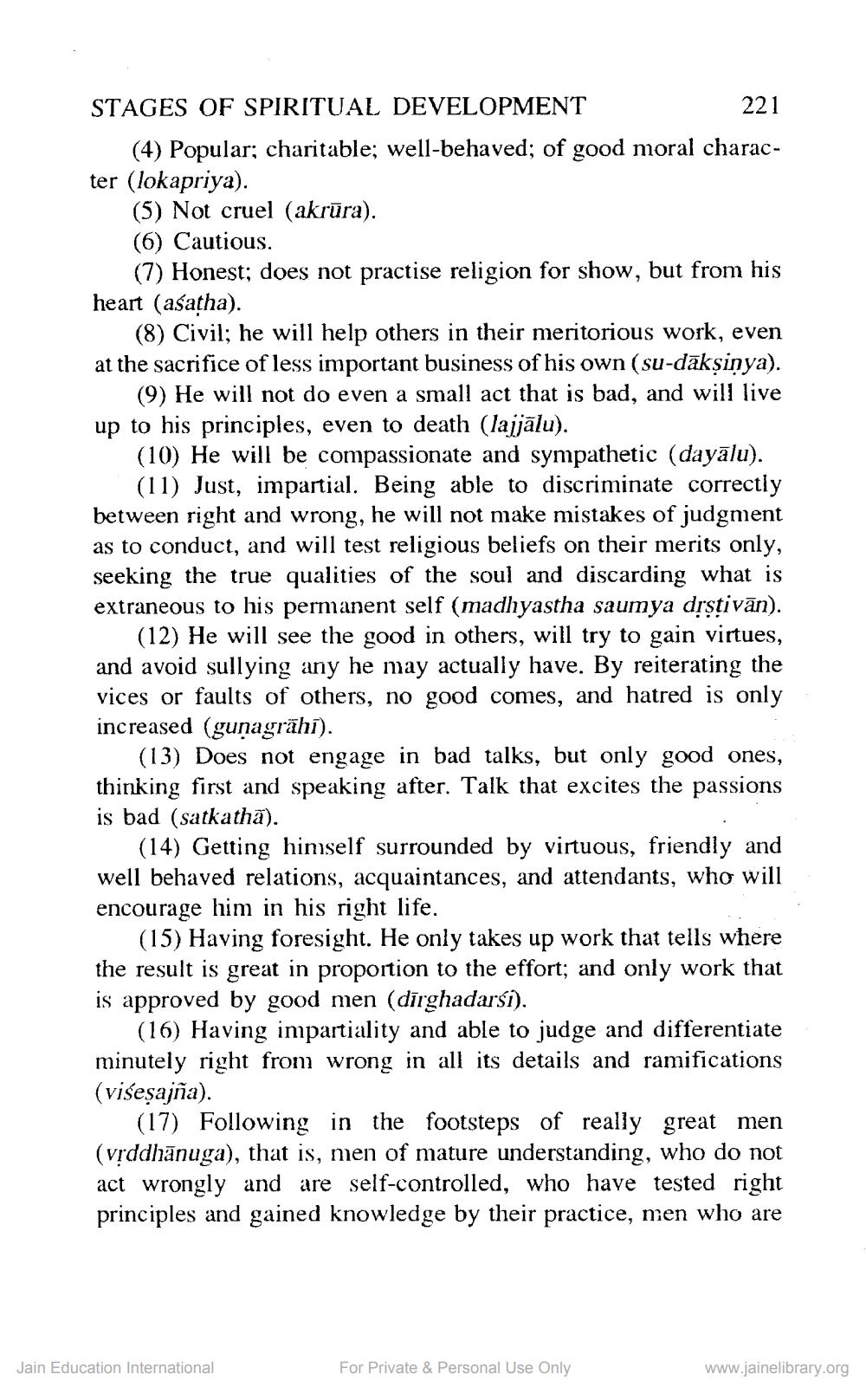________________
STAGES OF SPIRITUAL DEVELOPMENT
221
(4) Popular; charitable; well-behaved; of good moral character (lokapriya).
(5) Not cruel (akrūra).
(6) Cautious.
(7) Honest; does not practise religion for show, but from his heart (asatha).
(8) Civil; he will help others in their meritorious work, even at the sacrifice of less important business of his own (su-dākṣinya). (9) He will not do even a small act that is bad, and will live up to his principles, even to death (lajjālu).
(10) He will be compassionate and sympathetic (dayālu). (11) Just, impartial. Being able to discriminate correctly between right and wrong, he will not make mistakes of judgment as to conduct, and will test religious beliefs on their merits only, seeking the true qualities of the soul and discarding what is extraneous to his permanent self (madhyastha saumya dṛṣṭivān).
(12) He will see the good in others, will try to gain virtues, and avoid sullying any he may actually have. By reiterating the vices or faults of others, no good comes, and hatred is only increased (gunagrāhī).
(13) Does not engage in bad talks, but only good ones, thinking first and speaking after. Talk that excites the passions is bad (satkatha).
(14) Getting himself surrounded by virtuous, friendly and well behaved relations, acquaintances, and attendants, who will encourage him in his right life.
(15) Having foresight. He only takes up work that tells where the result is great in proportion to the effort; and only work that is approved by good men (dirghadarsi).
(16) Having impartiality and able to judge and differentiate minutely right from wrong in all its details and ramifications (viśeṣajña).
(17) Following in the footsteps of really great men (vṛddhānuga), that is, men of mature understanding, who do not act wrongly and are self-controlled, who have tested right principles and gained knowledge by their practice, men who are
Jain Education International
For Private & Personal Use Only
www.jainelibrary.org




